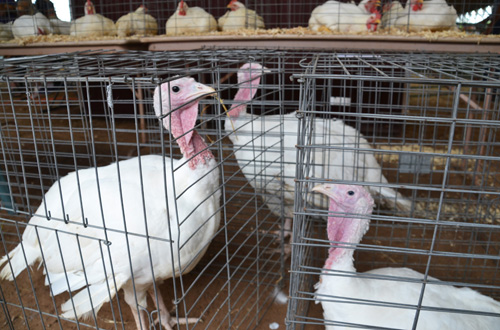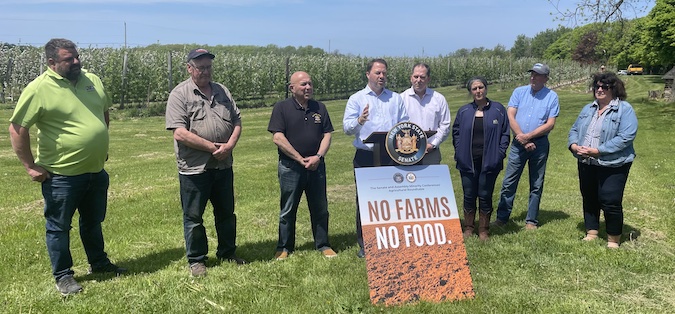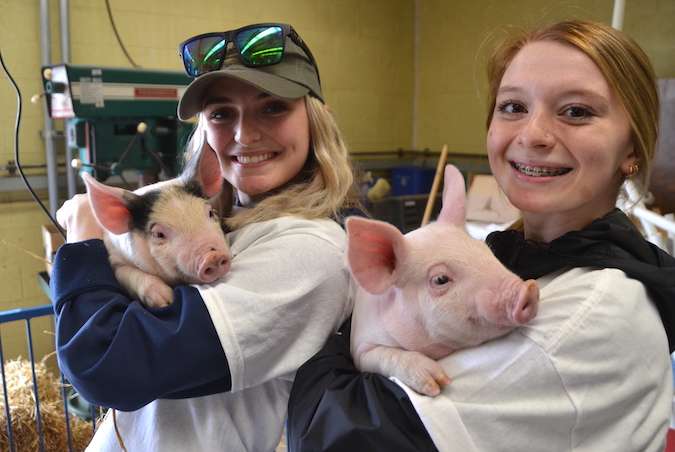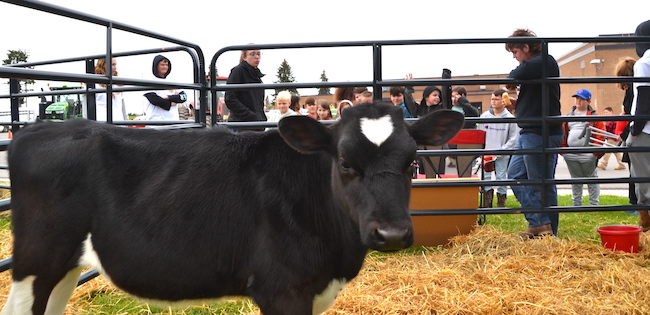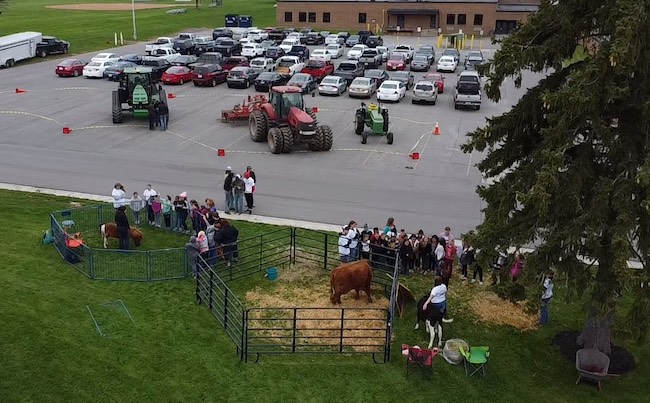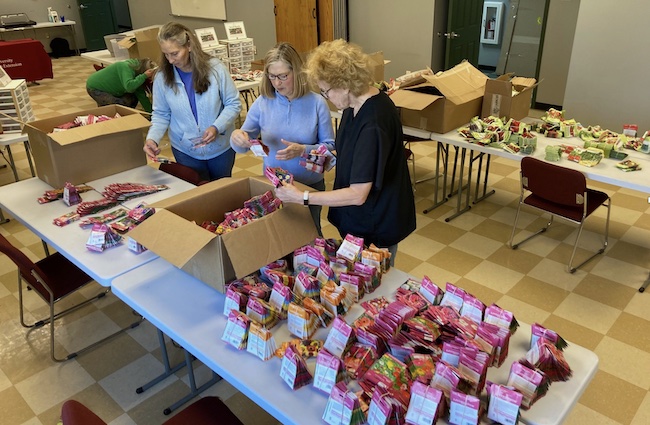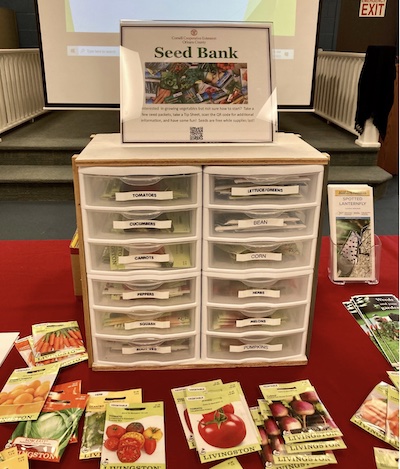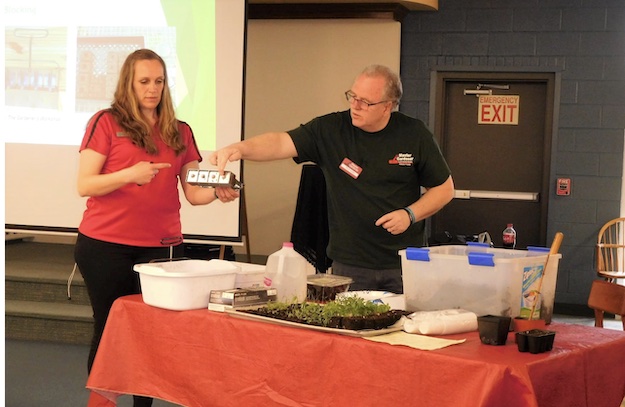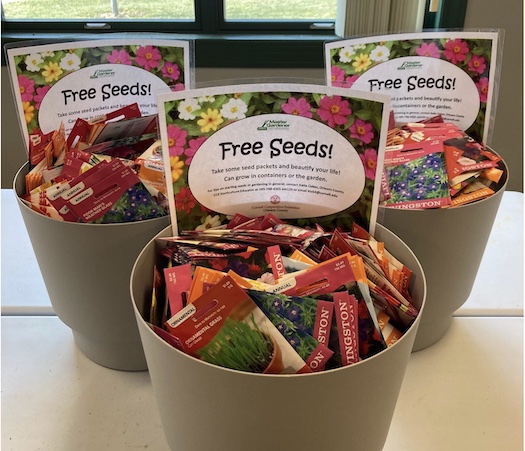Governor begins statewide listening tour about future of agriculture in NYS
Press Release, Gov. Kathy Hochul’s Office

Photo by Don Pollard/Office of Governor: Kathy Hochul visits the Long Island Farm Brewery today as part of her first stop on a tour and roundtable discussion the future of farming in New York.
Governor Kathy Hochul today launched a statewide listening tour on the future of farming in New York State. A series of listening sessions will allow the State to hear directly from farmers about their priorities in addressing climate, workforce, and economic challenges, and will help inform the State’s federal priorities for critical funding and policy changes in the areas of agriculture, nutrition, and the environment.
Kicking off the listening tour, Governor Hochul visited Bruno Farm in Suffolk County and held a roundtable session with stakeholders at Long Island Farm Brewery/Water Drinker Family Farm to hear from farmers about their successes and concerns. The Governor and Lieutenant Governor will be continuing the tours across the state in the coming months, in conjunction with listening sessions held by Agriculture Commissioner Richard A. Ball, with several stops scheduled to ensure that the farming community statewide has a chance to make their voices heard.
“New York’s agricultural industry is essential to our economy, our communities, and our way of life, and we want to make sure we put a special emphasis on farms as we continue to recover from the pandemic,” Hochul said. “Our farms have always been here for us, and we need to be there for them, and these listening sessions will help us navigate the challenges and opportunities in the agricultural community.”
The statewide listening tour provides an opportunity for state officials and agricultural industry leaders to engage with and hear from constituents about the importance of the 2023 Farm Bill to New York State, and how it will help to grow and sustain New York farms.
Hosted jointly by the New York State Department of Agriculture and Markets (AGM) and fellow state agencies, the tour began in Riverhead, Suffolk County today at Suffolk County Community College. Commissioner Ball was joined by New York State Department of Health Executive Deputy Commissioner Dr. Eugene Heslin and New York Farm Bureau representatives.
The second session is scheduled for Binghamton, Broome County on Monday, July 25 at 1 p.m. at Cornell Cooperative Extension Broome County. Commissioner Ball will be joined by state partners, Assembly Agriculture Committee Chair Donna Lupardo, and representatives from New York Farm Bureau. Participants can RSVP for the Binghamton session by emailing FarmBill@agriculture.ny.gov.
Additional sessions held across the state will be announced in the coming weeks. Written comments can be submitted to FarmBill@agriculture.ny.gov.
State Agriculture Commissioner Richard A. Ball said, “The Farm Bill has a tremendous impact on all sectors of our agricultural community here in New York State, and we want to hear from our partners and stakeholders about what is important to them. As we in Albany prepare to advocate for our farmers during this upcoming Farm Bill season, we take the comments we hear very seriously and will use them to inform our policy priorities. I encourage everyone to join us at one of the sessions announced today or join us for the remainder of the summer and into the fall as we travel across our great state to hear from you.”
Feedback gathered during the tour will be provided to help develop New York State’s policy agenda on the future of farming as well as the state’s priorities for critical funding and policy changes during the 2023 Farm Bill renewal conversations.
The Farm Bill is an omnibus, multi-year law that governs an array of agricultural and food programs. The most recent Farm Bill, the Agricultural Act of 2018, expires at the beginning of 2023.
Key areas impacted by the Farm Bill and to be discussed during the listening sessions include agriculture research, animal disease, conservation and climate resilience, cyber security, food safety, hemp, invasive species, local food systems, Specialty Crop Block Grants, and trade promotion.
New York Farm Bureau President David Fisher said, “The Farm Bill provides critical funding for a number of essential programs that farmers depend on, including risk management support, conservation assistance, and needed research. We encourage farmers to attend the listening sessions to help the New York State Department of Agriculture and Markets prioritize the needs of our diverse agricultural community. New York Farm Bureau thanks Commissioner Richard Ball and his team for hosting the listening tour to hear first-hand what our farmers value in the Farm Bill.”
Agriculture is a major driver of the New York State economy and just over a quarter of New York State’s land mass, or 7 million acres, is dedicated to farmland. Nearly 33,000 family farms produce some of the world’s best food with the State ranking in the top 10 in 30 different commodities that support its communities.
New York is the largest producer of cottage cheese, sour cream, and yogurt in the United States; The State ranks second in maple syrup, apples, and cabbage; third in grapes; and fourth in floriculture. It also ranks fifth in green peas, squash, and milk production, which is the largest segment of the state’s agricultural sector. Nearly 3,500 dairy farmers produce 15.5 billion pounds of milk annually in New York State.



























